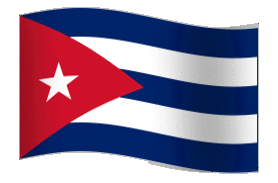The situation of Cuba in the 1930’s demonstrated how disadvantaged the Cuban people really were. The difficult conditions of the Great Depression impacted Cuba significantly. Not only did the Depression cause trouble and economic turmoil for the Cubans directly, but the struggles of partner nations, like the United States, caused a lack of exports that further worsened the economy in Cuba. The United States was unable to afford Cuban sugar, and the Cuban economy relied on purchases like this. With its economy a mess, Cuba entered a downward spiral of political chaos, and experienced a series of short-lived, frequently corrupt governments. The instability in Cuba led people to challenge President Machado’s rule and he was eventually forced into exile. With Machado gone, Carlos Manuel de Céspedes y Quesada became the new president of Cuba (1). This change did not bring stability, however, as Céspedes was quickly overthrown in 1933 and a new government was instituted under Ramón Grau. The Grau government lasted for only 100 days (2). With the help of the United States government, the “Revolution of 1933” put leftist groups into power. Cuba became a military state, led by a series of “puppet presidents”, with the strings being pulled by future dictator Fulgencio Batista (3). The chaos and confusion of the 1930’s did not allow Cuba to grow as an independent nation. Without continuity, there was little that could be done for the Cuban people. Although Cuba was able to remove the chains of the Platt Amendment during this time, the United States was still able to secure influence in Cuba once again by helping to put pro-American, anti-communist dictators in place. Despite bloodshed and political overthrow, Cuba still lacked a truly free, self-sufficient government.
_____________________________________________________ (1) Encyclopædia Britannica Online School Edition, s.v. "Batista, Fulgencio," (accessed May 28, 2013)
(2) Pino, Julio César. "Fidel Castro." In American History. ABC-CLIO, 2000-, (accessed May 28, 2013) http://americanhistory.abc-clio.com/.
(3)Encyclopædia Britannica Online School Edition, s.v. "Cuba," (accessed May 28, 2013)
(2) Pino, Julio César. "Fidel Castro." In American History. ABC-CLIO, 2000-, (accessed May 28, 2013) http://americanhistory.abc-clio.com/.
(3)Encyclopædia Britannica Online School Edition, s.v. "Cuba," (accessed May 28, 2013)


No comments:
Post a Comment